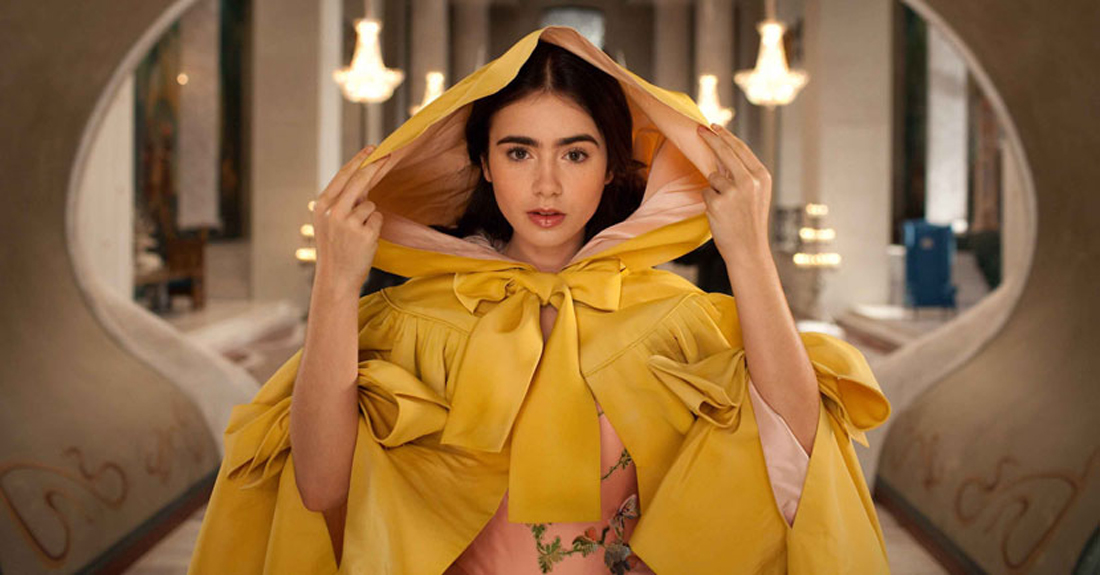It’s late February, which means that it’s time for my annual analysis of the Oscars’ mid-major categories. I like writing this piece, because it’s a way for me to recognize terrific work in aspects of film that I don’t always get to discuss in my reviews. (It also fills the Film page during what’s typically a slow week for new movies.) As usual, if I get any of these Oscar predictions wrong, I’ll refund you the price you paid to read this article.
Cinematography: Claudio Miranda looks nailed on for the award here for his overwhelming photography in Life of Pi. (Then again, I said the same thing about The Tree of Life last year in this category, and that didn’t pan out.) If he were to lose, Roger Deakins would be a worthy winner for Skyfall — action movies don’t typically get tapped for this category, and Deakins has somehow never won an Oscar despite 10 nominations. Equally deserving would be Robert Richardson’s sharply stylish work on Django Unchained. Sadly missing from the field is Gökhan Tiryaki’s intensely beautiful nocturnal photography on the Turkish film Once Upon a Time in Anatolia. Robert Yeoman’s should have been recognized for Moonrise Kingdom — how has Wes Anderson’s longtime cinematographer never been nominated for an Oscar? Also meriting a first Oscar nod would have been Dariusz Wolski, whose photography for Prometheus was gasp-inducing in its forbidding majesty.
Production design: I’m not that impressed with the field here. The leaders are the movies with sets that draw attention to themselves — the CGI-generated lifeboat floating on the high seas in Life of Pi and the fold-up theatrical sets from Anna Karenina. Those are impressive pieces of work, but they didn’t even make my top five list of movies with the best art direction this year. Mirror Mirror is the only movie that made me think, “Wow, look at the sets in this film!” Almost as egregious, how did the evocations of six different locations and time periods in Cloud Atlas not get noticed? The futuristic work in Looper and Prometheus and the period dollhouse look of Moonrise Kingdom would have been worthy nominees as well, and even though I’m on record as thinking Beasts of the Southern Wild is overrated, this is one category where it merited a nomination. Any of those would have been better nominees in this category than Lincoln or The Hobbit.
Costume design: Jacqueline Durran’s tsarist Russia costumes from Anna Karenina provide the front-runner here, though I’d prefer the late Eiko Ishioka’s extravagantly imaginative work for Mirror Mirror. Colleen Atwood’s similarly nominated costumes for Snow White and the Huntsman, which take an angular approach to the fairy tale, would be a good pick, too. The clothes world is abuzz about Sharen Davis’ clothes for Django Unchained being overlooked, and that is a shame indeed. However, the same designer did excellent work for Looper as well, imagining functional outfits for the future. Cloud Atlas, Prometheus, and The Avengers all had a plausible case for nominations in this category as well. How cute would it have been to see Magic Mike’s stripper outfits get nominated? The really big snub here is Kasia Walicka-Maimone’s outfits for Moonrise Kingdom, which are not only true to the movie’s 1960s setting but also color-coded in counterintuitive ways (the angry girl wears a pink dress for most of the movie) and worked out down to the last achievement badges on the scouts’ uniforms.
Foreign language film: No mystery here. Amour has this category locked down and deservingly so. The stupid rule dictating that each country submit only one film for consideration remains in effect, which means the Academy can’t be blamed for failing to nominate Holy Motors — the French ignored Leos Carax’s wildly original epic in favor of the far inferior The Intouchables. (The latter movie was justly ignored by the Academy. Let’s all laugh at the French.) The same thing holds true for Japan, Canada, and Russia, which, respectively, failed to submit I Wish, Café de Flore, and Elena. However, the Academy has no excuse for overlooking Christian Petzold’s Barbara, a superb German drama that didn’t even make the short list for the nomination. Italy’s entry, the Taviani brothers’ arresting Shakespeare adaptation Caesar Must Die, similarly went begging. Ursula Meier’s excellent Swiss drama Sister did make the short list but ended up bereft of a nomination as well. All these films would have been better choices than Denmark’s staid A Royal Affair.
Animated feature: What are the odds that the Pixar movie in this field would be my least favorite? Thanks to Brave, that’s somehow the case. The Disney/Pixar complex has three nominees out of the five, and the vastly enjoyable Wreck-It Ralph seems likely to win, though it would be nice if this Oscar went to a fine movie that audiences ignored: Tim Burton’s Frankenweenie. The best movie in the field, though, is one that isn’t from the Mouse House; it’s the intelligent, disturbing, funny, and terrifying ParaNorman. While we’re talking about Disney, the conglomerate also distributed the Japanese film The Secret World of Arrietty, which was better than anything Disney put out last year. It should have received a nomination instead of Brave.
Documentary feature: Admittedly, I haven’t seen all the entries here, but this still looks like a powerhouse field. The feel-good factor behind Malik Bendjelloul’s detective story-cum-music documentary Searching for Sugar Man will probably propel it to a win, but David France’s rousing and reflective AIDS chronicle How to Survive a Plague would be a good-looking winner as well. Me, I’ll be rooting for Kirby Dick’s The Invisible War, a valuable though painful look at the epidemic of rape in the U.S. military and the institution’s pitifully inadequate handling of it. This Is Not a Film and West of Memphis lead the snubs in this category; check out my blog post on the year’s best documentaries for more in-depth information.
Original score: The best score I heard all year was for Sound of Noise, by the Swedish percussion collective known as Six Drummers. That wasn’t even ruled eligible for this award, nor was Alexandre Desplat’s terrific Britten-inspired music for Moonrise Kingdom, nor were the boldly experimental scores for Sound of My Voice (by Rostam Batmanglij) and Take This Waltz (by Jonathan Goldsmith). Jonny Greenwood’s brilliant, unsettling score for The Master was ruled eligible and would have been a deserving winner, but the hidebound elements in the Academy’s composers branch wouldn’t even give it a nomination. So what did get nominated? John Williams’ music for Lincoln might sneak in here, but the race seems to have come down to Mychael Danna’s eclectic score for Life of Pi and Dario Marianelli’s innovative music for Anna Karenina. Since those are the two best scores in the field, they’re worth pulling for.
Original song: The nominees this year are a pretty undistinguished lot — “Pi’s Lullaby” from Life of Pi is gently attractive, while the Seth MacFarlane co-penned “Everybody Needs a Best Friend” from Ted is a breezy swing-flavored item, but neither is going on my Spotify queue. Adele and Paul Epworth’s theme song from Skyfall will probably win, and it’s clearly the best of this bunch, even if I don’t think it’s one of Adele’s best songs. There are plenty of snubs to chew over here: Fiona Apple’s “Dull Tool” from This Is 40 is good, though it was probably too vitriolic for the category. My clownish side wishes that the hilariously overwrought Spanish-language theme song from La casa de mi padre had been chosen, which would have brought Christina Aguilera to the ceremony. In a more serious vein, the Arcade Fire’s “Abraham’s Daughter” from The Hunger Games has stature and menace that fits the movie’s dystopian setting. Did the four eligible songs from Django Unchained split the vote? Is that why none of them wound up nominated? I liked the 1970s soul-flavored “Who Did That to You?” with an uncharacteristically raw John Legend vocal. Still, my favorite unrecognized song was “100 Black Coffins,” an anachronistic blast of hip-hop in this Western, with a grim march tempo and rhythmic whistling motif matching the heroes’ journey into the heart of darkness. In the context of its movie, this was the best song from any movie in 2012.










